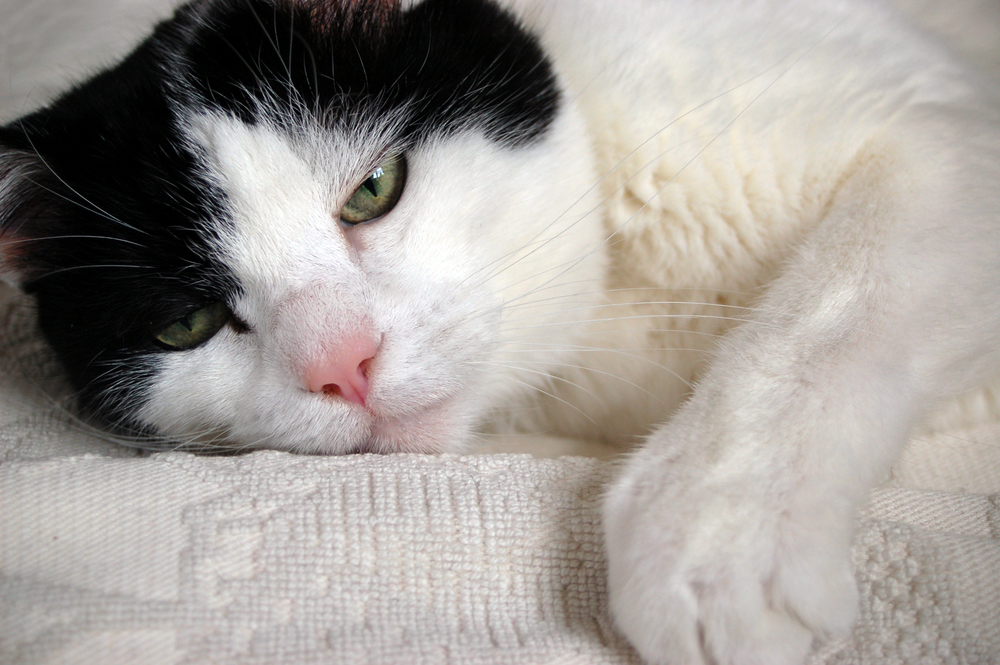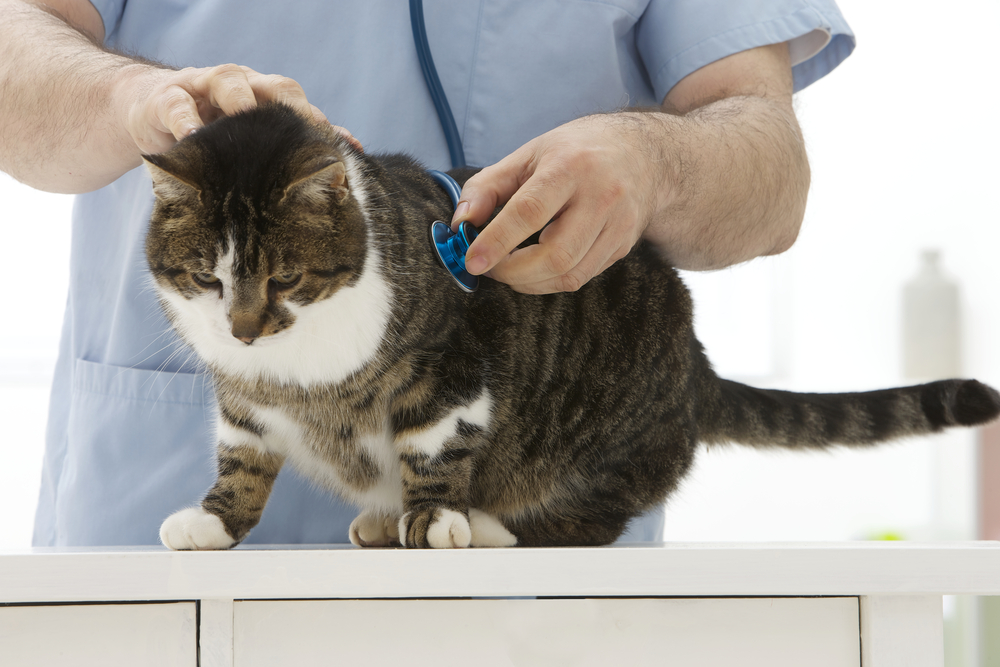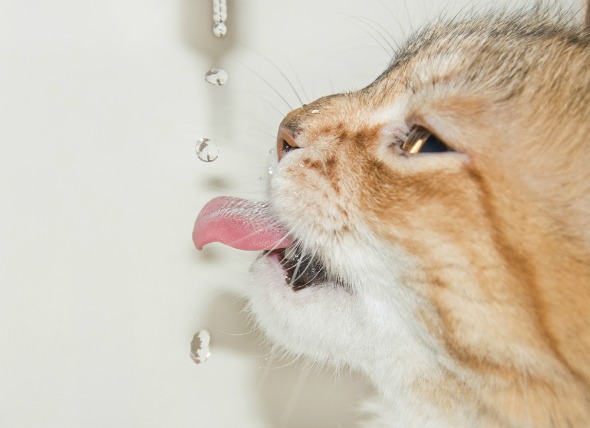
Heartworm in cats is caused by infestation of the organism Dirofilaria immitis, a parasitic nematode (roundworm) commonly referred to as the heartworm. The severity of this disease is directly dependent upon the number of worms present in the body, the duration of the infestation, and the response of the host (the infested cat is the host).
The prevalence rate of heartworm disease in unprotected cats that have not received the proper preventative medication, or prophylaxis, is significantly lower than that of unprotected dogs -- approximately one-tenth the rate of dogs. Additionally, most cats have only a few heartworms present, and the worms infecting cats are physically smaller and have a shorter lifespan than those infecting dogs. Outdoor cats are at increased risk, and are twice as likely to contract heartworm disease as indoor cats.
Signs of heartworm infestation in cats include coughing, labored raspy breathing (known as dyspnea), and vomiting. Respiratory problems and vomiting are the predominant symptoms in cases of chronic infestation. A physical examination may also reveal a heart murmur or otherwise irregular heart rhythm.
Heartworms are spread through mosquito bites carrying infective heartworm larvae. Because the lifecycle of heartworms affecting cats is shorter than the cycle of those infecting dogs, a look at the (more prevalent) infestation process in dogs is useful. In dogs, the larvae migrate from the bite wound through the body until they reach the heart and blood vessels of the lungs. Here, the larvae mature and reproduce, releasing immature heartworms, known as microfilaria into the animal’s blood. It is important to note that the presence of microfilaria in the blood is in fact uncommon in cats, and has been seen in less than 20 percent of infected cats.
It is also important to note that because heartworms in cats have a much shorter lifespan than those that infest dogs, a spontaneous cure without treatment is more likely to occur.
There are no specific tests that are able to diagnose heartworm disease in cats. A variety of tests that may be done to aid diagnosis include a urine analysis, heartworm antigen and antibody tests, x-rays which may reveal the enlargement of certain veins or arteries associated with heartworm disease, and an electrocardiograph (ECG), which may allow for identification of worms in the heart or pulmonary artery. An ECG can also exclude or confirm other heart diseases that may exhibit similar symptoms.
There is currently no approved adulticide therapy (a treatment that kills the presence of adult heartworms in the body) for cats. Therefore, a surgical procedure to extract the adult worms may be the best option. However, because heartworms in cats have a much shorter lifespan than those that infest dogs, a spontaneous cure is more likely to occur, so that no such treatment is necessary. Various medications may be used in order to help treat symptoms as well.
After treatment, your veterinarian will schedule your cat for follow-up exams in order to test for progress, as well as to attend to any side effects of treatment.
Heartworms are a preventable disease, and there are a number of medicinal preventatives that are highly effective and commonly used. Your veterinarian can determine which medicine is best for your cat.
 Why a Siamese Cat Will Always be My Best Friend
A Siamese cat will let you be their best friend.But the
Why a Siamese Cat Will Always be My Best Friend
A Siamese cat will let you be their best friend.But the
 Cataracts in Cats
Cloudiness of the Eye Lens in Cats
Cataract refer
Cataracts in Cats
Cloudiness of the Eye Lens in Cats
Cataract refer
 Liver Inflammation (Chronic) in Cats
Chronic, Active Hepatitis in Cats
Long-term, ongo
Liver Inflammation (Chronic) in Cats
Chronic, Active Hepatitis in Cats
Long-term, ongo
 Pancreatic Cancer in Cats
Insulinoma in Cats
Insulinomas are malignant neop
Pancreatic Cancer in Cats
Insulinoma in Cats
Insulinomas are malignant neop
 Diabetes with Ketone Bodies in Cats
Diabetes Mellitus with Ketoacidosis in Cats
The t
Diabetes with Ketone Bodies in Cats
Diabetes Mellitus with Ketoacidosis in Cats
The t
Copyright © 2005-2016 Pet Information All Rights Reserved
Contact us: www162date@outlook.com